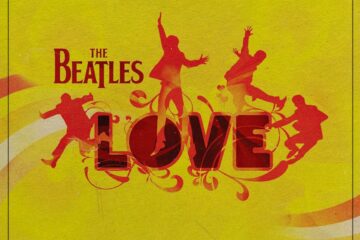The widespread impact of The Beatles on the cultural tapestry we now find ourselves swaddled in is so vast that it is shocking to most that they were only in the limelight of the public eye for around eight years as a band. Bursting on to the music scene in 1962 with the release of ‘Love Me Do’. The group would be rocketed into a world previously unknown, and the demand would be something entirely unconscionable. By the end of 1967, The Beatles were physically, mentally and emotionally spent.
Not only had their fame reached a fever pitch, something that even refusing to tour didn’t dampen, but now the tensions surrounding such meteoric fame began to arise. The group, who had previously operated largely as a single unit – a gang to rival any motorbike group on the streets near the Mersey – were now beginning to tread their own paths. To make matters worse, with the tragic passing of their manager and leader, Brian Epstein, the Fab Four were slowly falling apart. It makes it all the more impressive that they were able to record an album as game-changing as Sgt. Pepper’s Lonely Hearts Club Band.
The reason for the LP ever being fully completed can be attributed largely to the emergence of Paul McCartney as the band’s new leader. Where Lennon and Epstein had once stood, Macca was now carving his own place on the mantel, driven by musical nous and creativity, and it appeared that The Beatles were entering a new chapter. To compound this point, at the end of the year, the group would record what John Lennon would describe as a “meaningless” song, which would, eventually, be released as the A-side to Lennon’s track ‘I Am The Walrus’, an idea that left the ever poetic and often misjudged Lennon feeling positively enraged.
‘Hello Goodbye’ isn’t regarded as one of The Beatles’ finest yet. Somehow, and much to Lennon’s displeasure, the song was released as the main single—hitting number one as it did. The track has been thought of well in recent years, but it is hard to get past a certain triteness within the lyrics. However, the tune stands for a little more than yet another number one.
The tune was picked as the A-side for Lennon’s far more artistic track, and the tension was palpable. It wasn’t just a choice; it was an acknowledgement of the shift of the inner-band dynamics. Things had changed. By the end of 1967, it felt as if Macca was now leading his band through his own personal preferences of music hall tomfoolery. All the while, Lennon was plotting a return to rock on The White Album.
Released on November 24th, 1967, ‘Hello Goodbye’ has a habit of dividing audiences. Some see it as the perfect combination of pop and spirituality, marrying the undeniable McCartney melody with a sense of the Buddhist void that would certainly appeal to their growing audience of hippies and acid-loving free thinkers. The song also arrived out of thin air, with Macca showing off his songwriting chops. For others, the track is a reminder of the lack of supposed substance that had begun to somewhat frequently find its way into the group’s tunes.
Allistair Taylor, Epstein’s former personal assistant, was attending a dinner when Macca showed the now boss of Apple Corps how easy it was to write a song. “Paul marched me into the dining room, where he had a marvellous old hand-carved harmonium,” recalled Taylor for Yesterday. “Come and sit at the other end of the harmonium. You hit any note you like on the keyboard. Just hit it and I’ll do the same,” she added.
“Now whenever I shout out a word, you shout the opposite and I’ll make up a tune. You watch, it’ll make music’. ‘Black,’ he started. ‘White,’ I replied. ‘Yes.’ ‘No.’ ‘Good.’ ‘Bad.’ ‘Hello.’ ‘Goodbye.’ I wonder whether Paul really made up that song as he went along or whether it was running through his head already,” knowing the smarts Macca had at his disposal, it’s hard to imagine he didn’t have something in mind before sitting at the harmonium.
McCartney later spoke a little more in-depth about the track so delicately poised on the duality of life, stating: “‘Hello, Goodbye’ was one of my songs. There are Geminian influences here I think the twins,” he remembered when speaking to Barr Miles for Many Years From Now. “It’s such a deep theme in the universe, duality – man woman, black white, ebony ivory, high low, right wrong, up down, hello goodbye – that it was a very easy song to write. It’s just a song of duality, with me advocating the more positive. You say goodbye, I say hello. You say stop, I say go. I was advocating the more positive side of the duality, and I still do to this day.”
As the perfect distillation of their two characters, Lennon was deeply disappointed not only with the song but with the idea that it had trumped his own trippy piece of music, ‘I Am The Walrus’. “That’s another McCartney. Smells a mile away, doesn’t it?” snarkily replied Lennon when speaking to David Sheff about the song in 1980. “An attempt to write a single. It wasn’t a great piece; the best bit was the end, which we all ad-libbed in the studio, where I played the piano.”
Later, Lennon would describe the song as “three minutes of contradictions and meaningless juxtapositions”, and while we can’t quite attest to that description, it’s easy to see why Lennon was frustrated. It was clear from the choice to place a universally understood and easily digestible song as the band’s single and relegate Lennon’s confounding kaleidoscopic track ‘I Am The Walrus’ as its backup that McCartney was now in charge. The commercial backing that the band needed was now seemingly a more worthwhile pursuit than any kind of artistic endeavour. And if you wanted to get a number-one single, then McCartney was your man.
The Beatles’ breakup occurred thanks to thousands of different strands coming together, but it’s hard not to see this decision as one of the cementing factors of the band’s new position and, therefore, their eventual demise.



